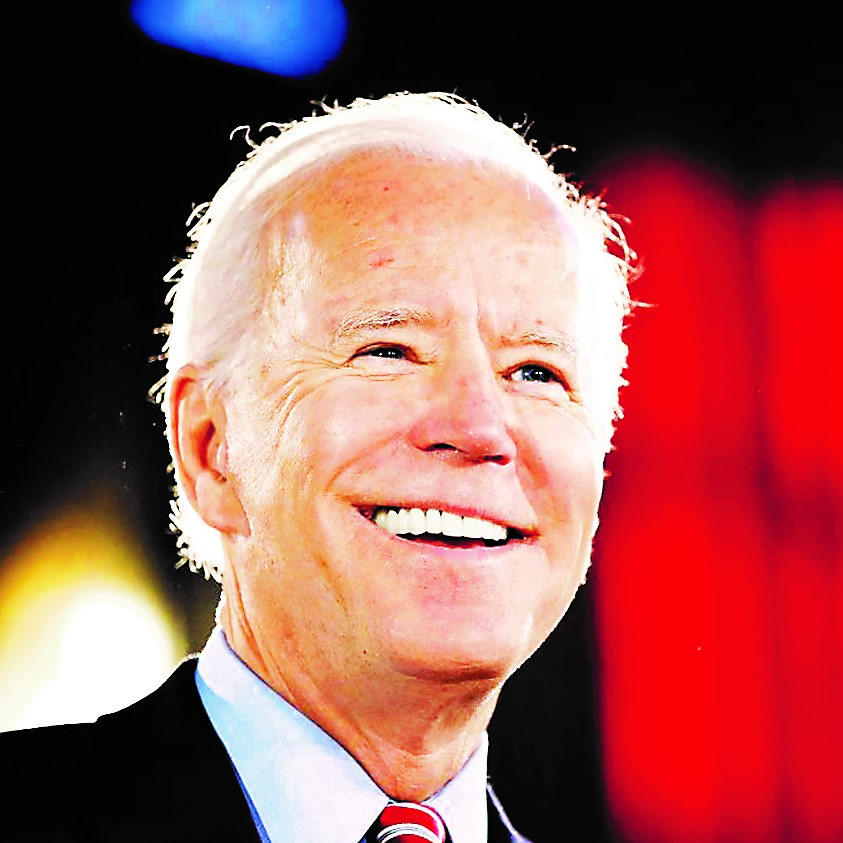click to dowload our latest edition
CLICK HERE TO SUBSCRIBE TO OUR NEWSLETTER


Published
4 years agoon
By
adminRON KAMPEAS
In spite of threats of a boycott by Democrats and anxieties about communicable diseases, this year’s annual policy conference of the American Israel Public Affairs Committee (AIPAC) was a busy, bustling, and bipartisan affair.
Still, the names that loomed largest were the ones that didn’t make an appearance: Bernie Sanders and United States President Donald Trump.
Sanders, the Vermont senator who is currently the front-runner for the Democratic presidential nomination, announced last week that he would boycott the AIPAC conference, saying the organisation provides a platform for “leaders who express bigotry and oppose basic Palestinian rights”.
Trump has snubbed AIPAC since 2016, when its leadership rebuked the then-presidential candidate because he had directly attacked President Barack Obama in his speech. Attacking a sitting president is a major no-no for a lobby that makes bipartisanship and a willingness to work with all administrations its brand.
Their absence this week underscores the increasing threat to the viability of a pro-Israel posture that depends on bipartisanship. Trump, who has probably had the closest relationship of any president with an Israeli government, doesn’t need to appear at AIPAC to burnish his pro-Israel credentials. And Sanders is nurturing a wing of the Democratic Party willing to redefine the US-Israel relationship in ways antithetical to traditional pro-Israel postures.
AIPAC always asks conference participants – an estimated 18 000 this year – to keep it civil. But this year, in addition to the recorded requests at the outset of plenary sessions, two top board members took to the stage and pleaded for comity.
One was Amy Friedkin of San Francisco, a past president who is close to House Speaker Nancy Pelosi. The other, Alan Franco of New Orleans, has been a major donor to Republican campaigns.
“The best way to persuade us is with facts, not fire,” is what Friedkin said AIPAC had told its speakers, and she and Franco urged activists to refrain from cheering those who attacked political rivals.
Fire at times overwhelmed the facts.
Pence listed Trump’s Israel-related moves – moving the US embassy to Jerusalem, cutting funding for Palestinians, and leaving the Iran nuclear deal – and accused Sanders of “openly and repeatedly attack[ing] Israel as a racist state”.
Pence culminated his speech with a call to re-elect Trump.
“The most pro-Israel president in history must not be replaced by one who would be the most anti-Israel president in the history of this nation,” Pence said. “That’s why you need four more years of President Trump in the White House.”
The call for Trump’s re-election earned Pence a standing ovation, a display that was likely to unsettle the leadership of a lobby that cultivates a careful distance from direct politicking at its events.
But Trump also found himself on the wrong side of an applause line from Bloomberg. Anti-Semitism “can be found both on the right and the left”, the former New York mayor said, “but there is one fact that we cannot ignore: presidential leadership matters. It sets a tone.”
Throughout the passage – clearly meant as a swipe at Trump – the crowd applauded.
Following Sanders’ scorched-earth statement last week, there was a rush of announcements from moderate Democratic candidates that they would attend or speak at the conference. Biden, the former vice-president, addressed the throng by video, as did Minnesota Senator Amy Klobuchar, who dropped out of the presidential race on Monday. Pete Buttigieg, the former mayor of South Bend, Indiana, was to deliver a video address, but dropped out of the race before his scheduled remarks. Elizabeth Warren, the Massachusetts senator, had already said she wouldn’t attend.
The difficulties of sustaining a robust relationship with Democrats were in evidence on the main stage and in side panels. On Monday morning, four strategists – two Democrats and two Republicans – delivered predictions on what the coming year would bring.
One of the Republicans, Brad Todd of Tennessee, predicted that Pelosi would no longer be speaker of the US House of Representatives in January, which drew loud applause – a startling response considering Pelosi’s closeness to an array of AIPAC-aligned figures like Friedkin.
The difficulty of garnering bipartisan support was evident as well in the legislative agenda that AIPAC activists were to take to Capitol Hill on Tuesday. AIPAC generally unveils new initiatives with its agenda, but none of the measures this year are new or innovative: support of defence assistance to Israel, AIPAC’s sine qua non; a letter and a resolution urging an expansion of Iran sanctions (the Trump administration has expanded sanctions nonstop); and letters decrying the International Criminal Court for targeting Israel.
AIPAC Chief Executive Howard Kohr in his address – mostly a broadside against Sanders that did not name the candidate – said, “Our deepest desire is that Israel reaches an enduring peace with the Palestinians, leading to two states for two peoples,” but Palestinians were for the most part absent from the conversation.
A side session called “Promoting Palestinian Prosperity” included four panellists who were American or Israeli. When a questioner asked why no one on the panel was Palestinian, one of the panellists, Brad Gordon, a top retired official of the lobby, agreed that it would have been a good idea to invite one.
Ahead of the event, there was anxiety among conference organisers that the coronavirus scare would depress turnout and leave the impression that people were staying away because AIPAC was unpopular.
Those fears weren’t borne out. The halls were packed, and AIPAC boasted about preparing 25 000 hot dogs among other kosher food for those attending.
